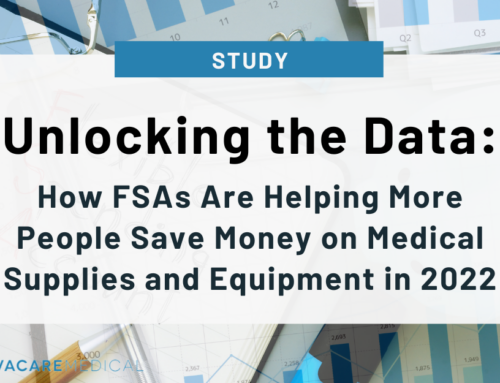A damaged or sprained ankle is one of the most common injuries, and sleeping with one can be painful and damage your sleep quality. If your sleep is being disrupted as a result of your injury, then here is some of the most helpful advice on how to relieve any discomfort and enjoy a good night’s sleep.
A compression bandage may be recommended to speed up the healing process if you’ve sprained your ankle or ankles. You may, however, be unsure whether or not to wear it while sleeping. To put it simply, you shouldn’t sleep with a compression bandage on, but why is that?
These bandages compress the injured areas and drain any fluid buildup due to the ankle sprain. This compression removes surplus fluid from the area while also preventing new fluid from entering the area, minimizing edema. Although compression is beneficial for reducing swelling in the leg and ankle, wearing one for an extended period can damage your ankle’s rehabilitation. If you’re having trouble seeing any relief in your pain or swelling and discover that an elastic bandage will assist, you can wear it overnight if it’s not too tight.
Remember that the length of time you should wear the compression bandage depends entirely on the severity of your injury, so seek medical assistance. If you start to feel numb or detect a blue hue on your skin, the bandage is likely too tight and needs to be loosened. When it’s time to sleep, it’s critical to remove the compression bandage to allow for better blood flow and healing as you sleep.
How does a compression bandage work?
Consider a hospital bed with one of its legs broken. If the hospital bed isn’t fully supported, the remaining legs will struggle to keep it upright. As a result, the structure becomes weak. When we injure our ankles, our brain sends a large amount of fluid to the area to remove the damaged cells and replace them with new ones.
Fluid leakage will occur due to the structure being compromised since fluids will flow in different directions than they should. It is what causes ankle swelling. When you use a compression bandage, it squeezes out extra fluid and helps it move away from the damaged area, preventing fluid build-up.
How long should the compression bandage be worn?
Leaving a bandage on for an extended amount of time may be advantageous, but as with most things, too much of a good thing may be harmful. Compression bandages minimize swelling by preventing fluid from entering the body. It is why medical professionals recommend not wearing them for lengthy periods and removing them before going to bed.
Depending on the harshness of the damage, the length of time you should wear them varies. You’ll usually leave the bandage on when you’re not using ice. While the bandage is on, be aware of how your toes feel and seem. If they become numb or blue, loosen or remove the wrapping for a new moment to allow adequate blood flow.
One reason to put on a compression bandage before going to bed
There is one exception to the no-compression-at-night rule. Open sores on the legs are a common symptom of vein disease. Compression bandages might help them recover at night.
Consult your health care professional about when and how tight to use compression bandages for such medical purposes. Over-the-counter solutions abound for athletes or anyone trying to relieve leg swelling caused by sitting or standing. They come in a broad scope of sorts and kinds for daytime use.
Is it necessary to wrap a sprained wrist at night?
In the ideal situation, you should wrap the wrist up to where your fingers meet your hand. If you wrap your wrist too loosely, the bandage will slip off while you sleep or do your daily activities. Because it does not support the joint, a loose bandage is equivalent to having none at all.
Experts recommended that you alternate between heat and cold and better use hot and cold packs. Keep the elastic bandage on for the next 24 to 36 hours if you have one. The bandage should be snug but not so tight that numbers or tingling occurs.
Compression bandage effectivity
Compression might last up to a week. Elevation decreases swelling and bruising by preventing blood from reaching the injury. Experts recommend elevating the region for 2-3 hours per day, not overnight. The use of wedge pillows helps elevate the feet for a better experience.
Don’t overwrap. An overly tight bandage can entirely stop circulation. Swelling at the bandage’s ends, numbness or tingling, or discoloration indicate that the bandage is excessively tight and should be modified. Unwrap the fingers and toes, leaving them uncovered and free to move.
Treat injuries right away without sleeping on them.
RICE should be used to treat muscle pulls, joint sprains, and other injuries as soon as possible. A compression bandage may help. Massaging it with antibiotics and septic ointment may relieve it, but you should not let the injury be treated while sleeping. Instead, use the rice method as follows:
- Rest or restrict activities until an appropriate diagnosis may be made.
- Every hour, ice for roughly 20 minutes, with a 40-minute interval between treatments. For the first 24 to 72 hours, repeat as often as possible. It would help if you avoided heat at all costs.
- When paired with cold and elevation, compression with an elastic tensor bandage helps minimize swelling, discomfort, bruising, and other indications of inflammation. Elastic bandages should never be left on overnight!
- Elevating the wounded area above the heart level helps reduce the edema commonly associated with injury.
Final Thoughts
Although ankle injuries are common, being unable to walk is a major inconvenience, so keep these ideas in mind if this is your first time or if the pain is terrible. Don’t get settled in using ointments or other dressings for your ankle to recover, use a proper compression wrapper for a fast and better recovery.
AvaCare Medical’s highly-trained specialists assist people of all ages to regain independence, function, and confidence following an illness or injury. Our services include assisting patients in achieving personal goals and improving daily living tasks. Visit our website to learn more about AvaCare Medical or email us here at info@avacaremedical.com or contact us here at 1-877-813-7799.



